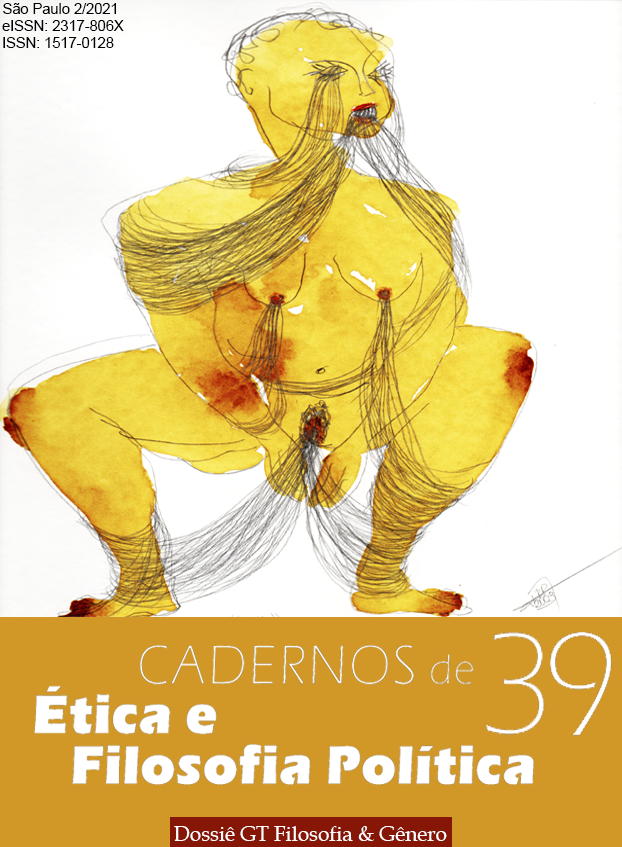The politics of the voice and of saying in Adriana Cavarero
DOI:
https://doi.org/10.11606/issn.1517-0128.v39i2p57-68Keywords:
Cavarero, Arendt, Feminism, Uniqueness, VoiceAbstract
One of the purposes of this article is to present the link between politics and speech proposed by Adriana Cavarero in "For More Than One Voice". Under declared influence of Hannah Arendt, Cavarero places uniqueness at the center of her thought, and the second purpose of this article is to show that uniqueness is a key idea for the fight against patriarchy. A fine analysis of Plato and Aristotle shows that they split logos into both, a sound and a logical aspect, and buried voice under semantics; this movement established a hierarchy that would mark the whole tradition. Gender difference is placed under this hierarchy, since tradition would attribute voice to woman and semantics to man. Fleshy, sensual and particular, voice and woman remained in the shadow of the spiritual, rational and universal guaranteed by man and his voiceless logos. Going one step further, Cavarero presents a vocal phenomenology of uniqueness in order to show that the voice carries human uniqueness. It is then necessary to bring speech back to its vocal root, which is specifically acoustic and traditionally feminine, in order to elaborate a post-patriarchal policy.
Downloads
References
ARENDT, H. The Human Condition. The Chicago University Press, 1998.
ARENDT, H. Between Past and Future. New York: Penguim, 2006.
CALVINO, I. “Um rei à escuta” in. Sob o sol-jaguar. São Paulo: Cia das Letras, 1995.
CAVARERO, D. Vozes plurais: filosofia da expressão vocal. Belo Horizonte: Editora UFMG, 2011.
CAVARERO, Adriana; BUTLER, Judith. Condição humana contra “natureza”. Revista Estudos Feministas, Florianópolis, v. 15, n. 3, p. 650, set. 2007. ISSN 1806-9584. Disponível em: https://periodicos.ufsc.br/index.php/ref/article/view/1714.
DIAS, T. Totalitarismo, tempo e ação: uma leitura de A condição humana de Hannah Arendt. 2008. Tese (Doutorado) – Faculdade de Filosofia, Letras e Ciências Humanas. Departamento de Filosofia, Universidade de São Paulo, São Paulo, 2018.
DIAS, T. “Hannah Arendt contra a differentia specifica” in. Kriterion (UFMG) 2018, vol.59, n.141, pp.921-941.
HONIG, B. "Introduction: The Arendt Question in Feminism" in. HONIG, B (org.). Feminist Interpretations of Hannah Arendt. The Pensilvania State University, 1995, pp.1-16.
MENDES, G. “Diótima e a construção da legitimidade do pensamento da diferença sexual no espaço público” in. Sísifo. FEIRA DE SANTANA-BA | nº 6 | vol. 1 | Ano 2017. Disponível em: http://www.revistasisifo.com/2017/11/diotima-e-construcao-da-legitimidade-do.html
Downloads
Published
Issue
Section
License
Copyright (c) 2021 Thiago Dias

This work is licensed under a Creative Commons Attribution-ShareAlike 4.0 International License.


